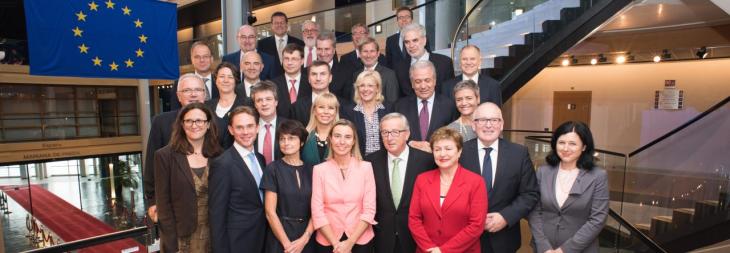The long-running saga — four years and counting — that is the European Union’s investigation into Google over alleged antitrust violations has stalled again.
Yesterday, newly appointed European Competition Commissioner Margrethe Vestager, who took over from previous commissioner Joaquin Almunia at the beginning of the month, issued a statement reiterating the “multifaceted and complex” nature of the decision she is being asked to make: Namely, whether or not the company is abusing its dominant market position by pushing its own services in search results ahead of competitors’.
“I will therefore need some time to decide on the next steps,” she says.
In other words, it’s business as usual in Brussels.
More worryingly for Google’s various competitors — including Microsoft and Yelp, who have explicitly thrown their weight behind the complaint, as well as European startups who compete vertically with Google’s sprawling product line — Vestager hints that the first step she needs to take in order to get to grips with the brief is to decide on the scope of the investigation before any final decision can be made.
Vestager says:
Our current investigations involving Google are among the most discussed in the media. The sheer amount of data controlled by Google gives rise to a series of societal challenges. Privacy is one of the most pressing concerns. Media pluralism is another. Not all of these challenges are primarily economic in nature and not all of them are competition related. So many of the Google related concerns voiced in the public debate cannot be addressed in our investigations into the company’s alleged anti-competitive practices. We will have to limit ourselves to what we identify as competition problems.
In order to decide “how to take our investigations forward,” Vestager says she plans to talk to “those most directly affected by the practices in question” to find out what they have to say. “I need to have a representative sample of views of those concerned,” she says.
And then comes the kicker.
“Also, we are talking about fast moving markets,” notes Vestager. “I have to be sure that we have all the facts up to date to get it right.”
This feels a lot like the commission chasing its own tail, especially when it came so close to making a decision. The markets are indeed “fast moving” and startups in particular don’t have time to wait for the regulator to effectively re-boot its investigation now that a new Competition Commissioner is in place. Meanwhile, Google continues to print money both in Europe and elsewhere.
